Al-Samkari H, et al. 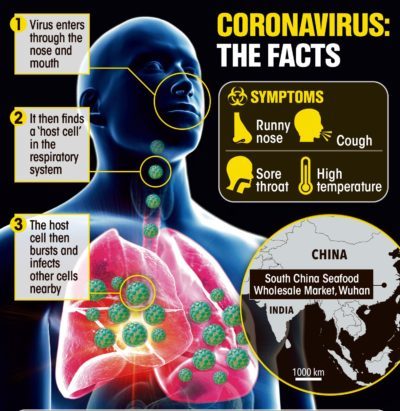 Based on autopsy reports like those from the Zrich hospital, the epidemiology of the disease, and how the new coronavirus behaves in cells in the lab, Carmeliet and colleagues believe the virus can send that system spinning out of control. 2005 - 2019 WebMD LLC. But the results showed Ruschitzka why his patients were suffering so much: The virus had targeted their blood vessels. Chilblain-like acral lesions during the COVID-19 pandemic (COVID toes): Histologic, immunofluorescence, and immunohistochemical study of 17 cases. Platelet gene expression and function in patients with COVID-19. Post-COVID conditions among adult COVID-19 survivors aged 18-64 and 65 years United States, March 2020 November 2021.
Based on autopsy reports like those from the Zrich hospital, the epidemiology of the disease, and how the new coronavirus behaves in cells in the lab, Carmeliet and colleagues believe the virus can send that system spinning out of control. 2005 - 2019 WebMD LLC. But the results showed Ruschitzka why his patients were suffering so much: The virus had targeted their blood vessels. Chilblain-like acral lesions during the COVID-19 pandemic (COVID toes): Histologic, immunofluorescence, and immunohistochemical study of 17 cases. Platelet gene expression and function in patients with COVID-19. Post-COVID conditions among adult COVID-19 survivors aged 18-64 and 65 years United States, March 2020 November 2021.  The study involved 68 people hospitalized with COVID-19. Typically taken to lower cholesterol, they also reduce inflammation and improve endothelial cell function. Experts say touching your face less reduces your risk for contracting the virus that causes COVID-19. The Lancet Haematology. Centers for Disease Control and Prevention. These tiny clots can be dangerous in people with COVID-19 pneumonia, where inflammation and fluid buildup already make it difficult to breathe.
The study involved 68 people hospitalized with COVID-19. Typically taken to lower cholesterol, they also reduce inflammation and improve endothelial cell function. Experts say touching your face less reduces your risk for contracting the virus that causes COVID-19. The Lancet Haematology. Centers for Disease Control and Prevention. These tiny clots can be dangerous in people with COVID-19 pneumonia, where inflammation and fluid buildup already make it difficult to breathe. 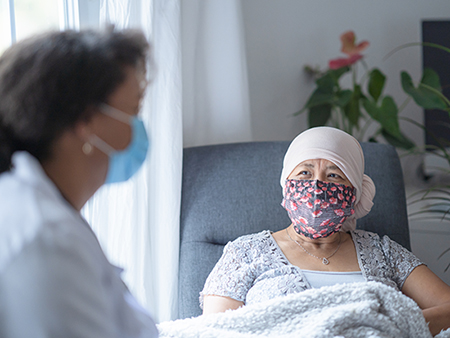 Some research even suggests the Omicron variant may not be as severe in the lungs as other variants. COVID-19 vaccine: Should I reschedule my mammogram? If youre at increased risk for blood clots, its possible that your doctor may prescribe an oral blood thinner medication. COVID-19, the illness caused by the coronavirus, starts with droplets from an infected persons cough, sneeze, or breath. You can reduce your risk for blood clots in general by doing the following: The best way to help prevent COVID-19-related blood clots is by taking steps to avoid contracting the new coronavirus. However, sometimes blood clots form in the absence of an injury. Blood clots in the lung are a common feature of severe COVID-19. New era in digital biology: AI reveals structures of nearly all known proteins, What a big new U.S. law that reshapes science agencies could mean for researchers, U.K. charity gives $36 million boost to gene editing for inherited heart diseases, U.S. Senate calls for hefty research spending in 2023, From dazzled to doubtful: New U.S. climate deal draws range of reactions, Webb spots new contender for earliest galaxy, Pandas may have had thumbs as early as 7 million years ago, Unconscious bias against Black and women physicians could undermine treatment, Some infectious viruses hitchhike on tiny plastics found in water, Blood vessel injury may spur disease's fatal second phase, New blood tests for antibodies could show true scale of coronavirus pandemic. The key is direct and indirect damage to the endothelial cells that line the blood vessels, particularly in the lungs, explains Peter Carmeliet, a vascular biologist at the Belgian research institute VIB and co-author of a 21 May paper in Nature Reviews Immunology. However, anyone who gets COVID-19 can have long-term effects, including people with no symptoms or mild illness with COVID-19. This makes it harder or even impossible for you to breathe.
Some research even suggests the Omicron variant may not be as severe in the lungs as other variants. COVID-19 vaccine: Should I reschedule my mammogram? If youre at increased risk for blood clots, its possible that your doctor may prescribe an oral blood thinner medication. COVID-19, the illness caused by the coronavirus, starts with droplets from an infected persons cough, sneeze, or breath. You can reduce your risk for blood clots in general by doing the following: The best way to help prevent COVID-19-related blood clots is by taking steps to avoid contracting the new coronavirus. However, sometimes blood clots form in the absence of an injury. Blood clots in the lung are a common feature of severe COVID-19. New era in digital biology: AI reveals structures of nearly all known proteins, What a big new U.S. law that reshapes science agencies could mean for researchers, U.K. charity gives $36 million boost to gene editing for inherited heart diseases, U.S. Senate calls for hefty research spending in 2023, From dazzled to doubtful: New U.S. climate deal draws range of reactions, Webb spots new contender for earliest galaxy, Pandas may have had thumbs as early as 7 million years ago, Unconscious bias against Black and women physicians could undermine treatment, Some infectious viruses hitchhike on tiny plastics found in water, Blood vessel injury may spur disease's fatal second phase, New blood tests for antibodies could show true scale of coronavirus pandemic. The key is direct and indirect damage to the endothelial cells that line the blood vessels, particularly in the lungs, explains Peter Carmeliet, a vascular biologist at the Belgian research institute VIB and co-author of a 21 May paper in Nature Reviews Immunology. However, anyone who gets COVID-19 can have long-term effects, including people with no symptoms or mild illness with COVID-19. This makes it harder or even impossible for you to breathe.  2020 May. When a blood vessel is injured, it produces proteins that attract platelets and other clotting factors. Swindon This content does not have an Arabic version. Clinical course and risk factors for mortality of adult inpatients with COVID-19 in Wuhan, China: a retrospective cohort study. Mayo Clinic is a nonprofit organization and proceeds from Web advertising help support our mission. How Does Coronavirus Move Through Your Body? Blood thinners can help prevent existing clots from getting bigger and keep new clots from forming. Long COVID or post-COVID conditions. Some infected cells likely commit suicide.
2020 May. When a blood vessel is injured, it produces proteins that attract platelets and other clotting factors. Swindon This content does not have an Arabic version. Clinical course and risk factors for mortality of adult inpatients with COVID-19 in Wuhan, China: a retrospective cohort study. Mayo Clinic is a nonprofit organization and proceeds from Web advertising help support our mission. How Does Coronavirus Move Through Your Body? Blood thinners can help prevent existing clots from getting bigger and keep new clots from forming. Long COVID or post-COVID conditions. Some infected cells likely commit suicide. 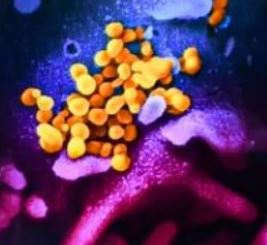 Some children and teens have been admitted to the hospital with an inflammatory syndrome that may be linked to thecoronavirus. That gives the virus a passage to the mucous membranes in your throat. Some critically unwell COVID-19 patients have had strokes due to a blockage of blood vessels supplying the brain. But if your symptoms include trouble breathing, get help right away. Mikkelsen ME, et al. The effects also could lead to the development of new conditions, such as diabetes or a heart or nervous system condition. Klok FA, Kruip MJHA, van der Meer NJM, et al. Organ damage could play a role. For example, a 21 May paper in The New England Journal of Medicine showed that the lungs of COVID-19 victims had nine times as many clots as those who died of the H1N1 flu. Catherine Matacic is an associate online editor, specializing in linguistics and the social sciences. WebMD does not provide medical advice, diagnosis or treatment. DOI: Klok FA, et al. MedlinePlus: Viral Infections, Fever., CDC: Coronavirus Disease 2019 (COVID-19)., Science: Cryo-EM structure of the 2019-nCoV spike in the prefusion conformation., Genetics Home Reference: What is a cell?, Federation of American Scientists: Do you have COVID-19 questions? However, a recent study, published in the journal The Lancet Haematology, helps shed some light on this topic. For instance, in some cases it can cause gastrointestinal symptoms, loss of smell or taste, or even a toe rash. For most people, the symptoms end with a cough and a fever. Their blood was analyzed for various markers associated with clotting. Supportive treatment in hospital is therefore mainly to increase blood oxygen. https://www.cdc.gov/coronavirus/2019-ncov/long-term-effects/post-covid-appointment/index.html. Endothelial cells express ACE2 protein, which the new coronavirus uses to enter cells. Among people age 65 and older, 1 in 4 has at least one medical condition that might be due to COVID-19. This mechanism could explain why the disease pummels some patients who have obesity, diabetes, and cardiovascular conditions: The cells lining their blood vessels are already compromised.
Some children and teens have been admitted to the hospital with an inflammatory syndrome that may be linked to thecoronavirus. That gives the virus a passage to the mucous membranes in your throat. Some critically unwell COVID-19 patients have had strokes due to a blockage of blood vessels supplying the brain. But if your symptoms include trouble breathing, get help right away. Mikkelsen ME, et al. The effects also could lead to the development of new conditions, such as diabetes or a heart or nervous system condition. Klok FA, Kruip MJHA, van der Meer NJM, et al. Organ damage could play a role. For example, a 21 May paper in The New England Journal of Medicine showed that the lungs of COVID-19 victims had nine times as many clots as those who died of the H1N1 flu. Catherine Matacic is an associate online editor, specializing in linguistics and the social sciences. WebMD does not provide medical advice, diagnosis or treatment. DOI: Klok FA, et al. MedlinePlus: Viral Infections, Fever., CDC: Coronavirus Disease 2019 (COVID-19)., Science: Cryo-EM structure of the 2019-nCoV spike in the prefusion conformation., Genetics Home Reference: What is a cell?, Federation of American Scientists: Do you have COVID-19 questions? However, a recent study, published in the journal The Lancet Haematology, helps shed some light on this topic. For instance, in some cases it can cause gastrointestinal symptoms, loss of smell or taste, or even a toe rash. For most people, the symptoms end with a cough and a fever. Their blood was analyzed for various markers associated with clotting. Supportive treatment in hospital is therefore mainly to increase blood oxygen. https://www.cdc.gov/coronavirus/2019-ncov/long-term-effects/post-covid-appointment/index.html. Endothelial cells express ACE2 protein, which the new coronavirus uses to enter cells. Among people age 65 and older, 1 in 4 has at least one medical condition that might be due to COVID-19. This mechanism could explain why the disease pummels some patients who have obesity, diabetes, and cardiovascular conditions: The cells lining their blood vessels are already compromised.  Within 2 to 14 days, your immune system may respond with symptoms including: The virus moves down your respiratory tract. All rights reserved. Its important to note that this study was only observational and wasnt a clinical trial. Some people continue to experience health problems long after having COVID-19. Coronavirus blood-clot mystery intensifies. Accessed May 6, 2022. Many patients had acute kidney failure, organ damage, and mysterious blood clots. The concern with these new treatments is that they may impede protective immune responses as well, which is why drug trials are underway to measure their benefits and risks.
Within 2 to 14 days, your immune system may respond with symptoms including: The virus moves down your respiratory tract. All rights reserved. Its important to note that this study was only observational and wasnt a clinical trial. Some people continue to experience health problems long after having COVID-19. Coronavirus blood-clot mystery intensifies. Accessed May 6, 2022. Many patients had acute kidney failure, organ damage, and mysterious blood clots. The concern with these new treatments is that they may impede protective immune responses as well, which is why drug trials are underway to measure their benefits and risks.  Clots due to COVID-19 can also affect capillaries. It damages the tissues and blood vessels in your alveoli, causing debris to collect inside them. When SARS-CoV-2 enters the lungs, it invades cells in the air sacs that transfer oxygen to the blood.
Clots due to COVID-19 can also affect capillaries. It damages the tissues and blood vessels in your alveoli, causing debris to collect inside them. When SARS-CoV-2 enters the lungs, it invades cells in the air sacs that transfer oxygen to the blood. 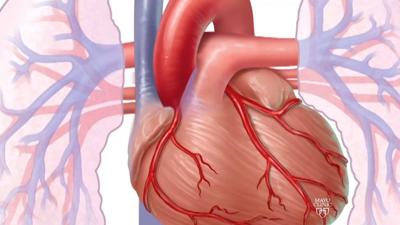 Endothelial cell infection and endotheliitis in COVID-19. Treatments targeting the inflammatory response, rather than the virus itself, exist for severe COVID-19. Frank Ruschitzka told his pathologist to be ready before the first COVID-19 patient died. Levi M, Thachil J, Iba T, Levy JH. Several weeks later, the first body was autopsied: Tiny clots and dead cells littered the capillaries of the lungs, and inflammation had distended blood vessels supplying every organ in the body. Rehabilitation after COVID-19 - Related information, Post-COVID Recovery - Related information, Post-COVID-19 syndrome could be a long haul (podcast) - Related information, Post-COVID-19 syndrome could be a long haul (podcast), Post-COVID conditions - Related information. Incidence of thrombotic complications in critically ill ICU patients with COVID-19. Healthline Media does not provide medical advice, diagnosis, or treatment. The Journal of Clinical Investigation. Acute respiratory distress syndrome (ARDS) begins a few days later.
Endothelial cell infection and endotheliitis in COVID-19. Treatments targeting the inflammatory response, rather than the virus itself, exist for severe COVID-19. Frank Ruschitzka told his pathologist to be ready before the first COVID-19 patient died. Levi M, Thachil J, Iba T, Levy JH. Several weeks later, the first body was autopsied: Tiny clots and dead cells littered the capillaries of the lungs, and inflammation had distended blood vessels supplying every organ in the body. Rehabilitation after COVID-19 - Related information, Post-COVID Recovery - Related information, Post-COVID-19 syndrome could be a long haul (podcast) - Related information, Post-COVID-19 syndrome could be a long haul (podcast), Post-COVID conditions - Related information. Incidence of thrombotic complications in critically ill ICU patients with COVID-19. Healthline Media does not provide medical advice, diagnosis, or treatment. The Journal of Clinical Investigation. Acute respiratory distress syndrome (ARDS) begins a few days later.  Carmeliet and colleagues suggest damage and other changes in the activated cells trigger vascular leakage, flooding the air sacs with fluid, a hallmark of ARDS. Cardiovascular Diagnosis and Therapy. UK Research and Innovation (2014). In children and teens, this high inflammation is called multisystem inflammatory syndrome in children (MIS-C), and it can particularly affect the heart. Like clotting, inflammation is an essential defense, sending a diverse army of cells and messenger molecules called cytokines to fight invaders and mop up the debris of battle. COVID-19 can potentially cause blood clots. Most people who get coronavirus disease 2019 (COVID-19) recover within a few weeks.
Carmeliet and colleagues suggest damage and other changes in the activated cells trigger vascular leakage, flooding the air sacs with fluid, a hallmark of ARDS. Cardiovascular Diagnosis and Therapy. UK Research and Innovation (2014). In children and teens, this high inflammation is called multisystem inflammatory syndrome in children (MIS-C), and it can particularly affect the heart. Like clotting, inflammation is an essential defense, sending a diverse army of cells and messenger molecules called cytokines to fight invaders and mop up the debris of battle. COVID-19 can potentially cause blood clots. Most people who get coronavirus disease 2019 (COVID-19) recover within a few weeks.  The Lancet. This is potentially dangerous because the clot can restrict the flow of blood within your blood vessels, leading to complications like stroke or heart attack. This impairs the transfer of oxygen between air sacs and blood, often causing the patient to experience shortness of breath as the body tries to compensate for the inefficient gas transfer by breathing faster.
The Lancet. This is potentially dangerous because the clot can restrict the flow of blood within your blood vessels, leading to complications like stroke or heart attack. This impairs the transfer of oxygen between air sacs and blood, often causing the patient to experience shortness of breath as the body tries to compensate for the inefficient gas transfer by breathing faster.  DOI: 10.1101/2020.04.19.20054262. The syndrome, now being referred to as multisystem inflammatory syndrome in children (MIS-C), is similar to toxic shock or to Kawasaki disease, a condition in children that causes inflammation in blood vessels. (2020). NCT04345848. Inflammation and problems with the immune system can also happen. If so, drugs used to treat these conditions might help prevent other COVID-19 patients from sliding into serious disease. (2020). Some give you thecommon cold. In this study, the platelets of people hospitalized with COVID-19 were found to be hyperactive, having increased activation and aggregation (clumping).
DOI: 10.1101/2020.04.19.20054262. The syndrome, now being referred to as multisystem inflammatory syndrome in children (MIS-C), is similar to toxic shock or to Kawasaki disease, a condition in children that causes inflammation in blood vessels. (2020). NCT04345848. Inflammation and problems with the immune system can also happen. If so, drugs used to treat these conditions might help prevent other COVID-19 patients from sliding into serious disease. (2020). Some give you thecommon cold. In this study, the platelets of people hospitalized with COVID-19 were found to be hyperactive, having increased activation and aggregation (clumping). 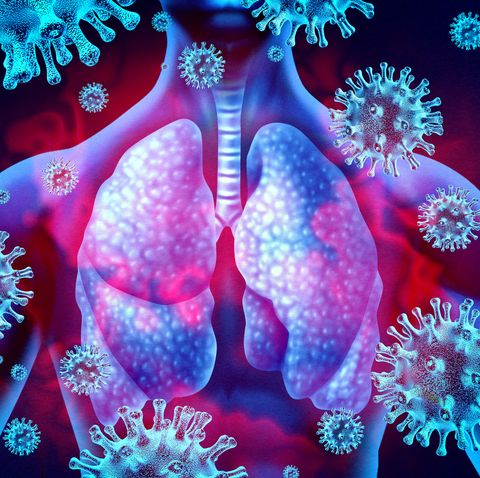 DOI: Paranjpe I, et al. 2020 Apr. A detailed understanding of how to prevent or treat this severe disease is needed, and research is underway to find this out. https://www.cdc.gov/coronavirus/2019-ncov/hcp/clinical-care/post-covid-conditions.html. This emerging view of the key role of endothelial cells suggests that a number of existing drugs might dampen or even arrest the fatal second phase of the disease, Becker says. Centers for Disease Control and Prevention. It isn't clear how long these effects might last. (Updated 12 Jun 2020). When injured, they send out a complex array of signals to immune cells and clotting factors, which rush to repair the site. Searching for ways to prevent life-threatening blood clots in COVID-19. 2020 Jul;191:145-147. [3] However, if clotting also starts to develop in the smallest vessels in the lung, this may cause a gradual deterioration in the patients condition, increasing oxygen requirements. They release chemicals called cytokines that attract other immune cells to the site of an infection. Thats the airway that includes your mouth, nose, throat, and lungs.
DOI: Paranjpe I, et al. 2020 Apr. A detailed understanding of how to prevent or treat this severe disease is needed, and research is underway to find this out. https://www.cdc.gov/coronavirus/2019-ncov/hcp/clinical-care/post-covid-conditions.html. This emerging view of the key role of endothelial cells suggests that a number of existing drugs might dampen or even arrest the fatal second phase of the disease, Becker says. Centers for Disease Control and Prevention. It isn't clear how long these effects might last. (Updated 12 Jun 2020). When injured, they send out a complex array of signals to immune cells and clotting factors, which rush to repair the site. Searching for ways to prevent life-threatening blood clots in COVID-19. 2020 Jul;191:145-147. [3] However, if clotting also starts to develop in the smallest vessels in the lung, this may cause a gradual deterioration in the patients condition, increasing oxygen requirements. They release chemicals called cytokines that attract other immune cells to the site of an infection. Thats the airway that includes your mouth, nose, throat, and lungs. 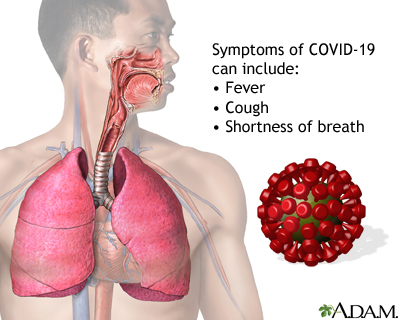 NIH ACTIV initiative launches adaptive clinical trials of blood clotting treatments for COVID-19, Novel blood filter approved by FDA for emergency treatment of COVID-19, Getting a COVID-19 vaccine can protect you from COVID-19. DOI: Sweid A, et al. Incidence of thrombotic complications in critically ill ICU patients with COVID-19. 2005-2022 Healthline Media a Red Ventures Company.
NIH ACTIV initiative launches adaptive clinical trials of blood clotting treatments for COVID-19, Novel blood filter approved by FDA for emergency treatment of COVID-19, Getting a COVID-19 vaccine can protect you from COVID-19. DOI: Sweid A, et al. Incidence of thrombotic complications in critically ill ICU patients with COVID-19. 2005-2022 Healthline Media a Red Ventures Company. 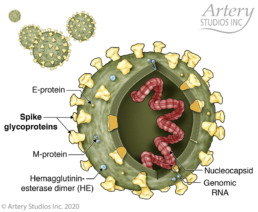 The NHLBI also supports new research, including clinical trials that are focused on developing treatments for people infected with SARS-CoV-2. Saeed S, et al. Goshua G, et al. Could the bodys response to the virus cause more harm than good? People with severe symptoms of COVID-19 often need to be treated in a hospital intensive care unit. All rights reserved. Wearing a mask indoors, washing your hands often, and staying at least 6 feet from other people can also help protect you and prevent possibly spreading the virus to others. Atrial fibrillation can increase your chance of developing dangerous blood clots. DOI: Manne BK, et al. directorsblog.nih.gov/2020/06/11/searching-for-ways-to-prevent-life-threatening-blood-clots-in-covid-19/, Atrial Fibrillation Blood Clots: Symptoms and Prevention, Symptoms and Complications of Blood Clots, The Unusual COVID-19 Symptoms You Can Miss, People Who Wear COVID-19 Masks Touch Their Faces Less Thats a Good Thing, Monkeypox Risk for Kids: What Parents Should Know. Ruschitzka thinks another commonly prescribed drug might help: statins. "One size does not fit all.". Post-COVID conditions: Overview for healthcare providers. DOI: Collins F. (2020). Going forward, clinical trials will need to be performed to determine the safety, effectiveness, and proper dosage of blood thinners to treat COVID-19-related blood clots. Other studies have noted inflammatory symptoms in children and strokes in otherwise healthy young adults. Some symptoms are similar to those caused by chronic fatigue syndrome and other chronic illnesses that develop after infections. Thrombosis Research. [5] Although patients in hospital routinely receive low-dose preventive blood thinning medications, some hospitals are now routinely giving higher doses to COVID-19 patients with very high D-dimer levels, and trials comparing doses of blood thinner are underway.[6]. About 5 to 8 days after symptoms begin, they have shortness of breath (known as dyspnea). In early March, Ruschitzka, who leads the cardiology department at University Hospital Zrich, noticed that patients with the disease had strange symptoms for what was then thought to be chiefly a respiratory infection. 2020 May. Smart Grocery Shopping When You Have Diabetes, Surprising Things You Didn't Know About Dogs and Cats, COVID Robs Millions of Sense of Smell, Taste, U.S. Nears Top Spot in Global Monkeypox Cases, Diets Heavy in 'Ultra-Processed' Foods Could Harm the Brain, Some CBD Creams, Patches Don't Match Labels, Dr. Whyte's Book: Take Control of Your Diabetes Risk, Artificial Intelligence to Spot the Red Flags ofSuicide Risk, Health News and Information, Delivered to Your Inbox. Mayo Clinic Minute: How dirty are common surfaces? People who already have damage to the blood vessels from diabetes or high blood pressure may be at higher risk of developing blood clots. This can cause your kidneys, lungs, and liver to shut down and stop working. Fox SE, Akmatbekov A, Harbert JL, et al. 2020 Mar;395(10229):1054-1062. NHLBI-funded research has helped us understand how inflammation and infection affect the blood. Researchers think the clotting may be triggered by the high levels of inflammation caused by the SARS-CoV-2 infection. Fluid and dead cells, in the form of mucous or pus, can collect in the air sacs themselves. COVID-19 does not just affect the lungs.
The NHLBI also supports new research, including clinical trials that are focused on developing treatments for people infected with SARS-CoV-2. Saeed S, et al. Goshua G, et al. Could the bodys response to the virus cause more harm than good? People with severe symptoms of COVID-19 often need to be treated in a hospital intensive care unit. All rights reserved. Wearing a mask indoors, washing your hands often, and staying at least 6 feet from other people can also help protect you and prevent possibly spreading the virus to others. Atrial fibrillation can increase your chance of developing dangerous blood clots. DOI: Manne BK, et al. directorsblog.nih.gov/2020/06/11/searching-for-ways-to-prevent-life-threatening-blood-clots-in-covid-19/, Atrial Fibrillation Blood Clots: Symptoms and Prevention, Symptoms and Complications of Blood Clots, The Unusual COVID-19 Symptoms You Can Miss, People Who Wear COVID-19 Masks Touch Their Faces Less Thats a Good Thing, Monkeypox Risk for Kids: What Parents Should Know. Ruschitzka thinks another commonly prescribed drug might help: statins. "One size does not fit all.". Post-COVID conditions: Overview for healthcare providers. DOI: Collins F. (2020). Going forward, clinical trials will need to be performed to determine the safety, effectiveness, and proper dosage of blood thinners to treat COVID-19-related blood clots. Other studies have noted inflammatory symptoms in children and strokes in otherwise healthy young adults. Some symptoms are similar to those caused by chronic fatigue syndrome and other chronic illnesses that develop after infections. Thrombosis Research. [5] Although patients in hospital routinely receive low-dose preventive blood thinning medications, some hospitals are now routinely giving higher doses to COVID-19 patients with very high D-dimer levels, and trials comparing doses of blood thinner are underway.[6]. About 5 to 8 days after symptoms begin, they have shortness of breath (known as dyspnea). In early March, Ruschitzka, who leads the cardiology department at University Hospital Zrich, noticed that patients with the disease had strange symptoms for what was then thought to be chiefly a respiratory infection. 2020 May. Smart Grocery Shopping When You Have Diabetes, Surprising Things You Didn't Know About Dogs and Cats, COVID Robs Millions of Sense of Smell, Taste, U.S. Nears Top Spot in Global Monkeypox Cases, Diets Heavy in 'Ultra-Processed' Foods Could Harm the Brain, Some CBD Creams, Patches Don't Match Labels, Dr. Whyte's Book: Take Control of Your Diabetes Risk, Artificial Intelligence to Spot the Red Flags ofSuicide Risk, Health News and Information, Delivered to Your Inbox. Mayo Clinic Minute: How dirty are common surfaces? People who already have damage to the blood vessels from diabetes or high blood pressure may be at higher risk of developing blood clots. This can cause your kidneys, lungs, and liver to shut down and stop working. Fox SE, Akmatbekov A, Harbert JL, et al. 2020 Mar;395(10229):1054-1062. NHLBI-funded research has helped us understand how inflammation and infection affect the blood. Researchers think the clotting may be triggered by the high levels of inflammation caused by the SARS-CoV-2 infection. Fluid and dead cells, in the form of mucous or pus, can collect in the air sacs themselves. COVID-19 does not just affect the lungs. 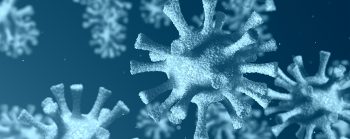 Thecoronavirusbehind the 2019-2022pandemic causes an illness called COVID-19. Subscribe to News from Science for full access to breaking news and analysis on research and science policy. Some people also have symptoms including: Researchers are looking into reports of mouth sores and skin rashes, including reddish-purple spots on fingers or toes. However, the virus can also have other effects on your body. But if too many cytokines are released in a short period, cells not infected by virus may also be killed causing collateral damage. He says the array of pathways may also explain why some young people without known risk factors for COVID-19 become seriously ill: They might have undiagnosed clotting or autoimmune disorders, such as rheumatoid arthritis, that amplify the effects of SARS-CoV-2 infection. "[A vaccine] would be terrific," says Richard Becker, a cardiologist at the University of Cincinnati College of Medicine who outlined a similar cardiovascular cascade in a 15 May review in the Journal of Thrombosis and Thrombolytis.
Thecoronavirusbehind the 2019-2022pandemic causes an illness called COVID-19. Subscribe to News from Science for full access to breaking news and analysis on research and science policy. Some people also have symptoms including: Researchers are looking into reports of mouth sores and skin rashes, including reddish-purple spots on fingers or toes. However, the virus can also have other effects on your body. But if too many cytokines are released in a short period, cells not infected by virus may also be killed causing collateral damage. He says the array of pathways may also explain why some young people without known risk factors for COVID-19 become seriously ill: They might have undiagnosed clotting or autoimmune disorders, such as rheumatoid arthritis, that amplify the effects of SARS-CoV-2 infection. "[A vaccine] would be terrific," says Richard Becker, a cardiologist at the University of Cincinnati College of Medicine who outlined a similar cardiovascular cascade in a 15 May review in the Journal of Thrombosis and Thrombolytis. 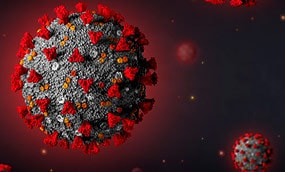 How well do face masks protect against COVID-19? COVID-19 and coagulation: Bleeding and thrombotic manifestations of SARS-CoV-2 infection. 2020 May;395(10234):1417-1418. medRxiv. The lungs of deceased patients are firm and swollen, and their airways may be clogged with frothy secretions. Coagulation abnormalities and thrombosis in patients with COVID-19. 1998-2022 Mayo Foundation for Medical Education and Research (MFMER). "It's a vicious cycle," says Nilam Mangalmurti, a pulmonary intensivist at the Hospital of the University of Pennsylvania, who was not involved in the new research. However, unlike many other common respiratory viruses, severe COVID-19 has diverse effects that affect multiple organs of the body. DOI: Zhang L, et al.
How well do face masks protect against COVID-19? COVID-19 and coagulation: Bleeding and thrombotic manifestations of SARS-CoV-2 infection. 2020 May;395(10234):1417-1418. medRxiv. The lungs of deceased patients are firm and swollen, and their airways may be clogged with frothy secretions. Coagulation abnormalities and thrombosis in patients with COVID-19. 1998-2022 Mayo Foundation for Medical Education and Research (MFMER). "It's a vicious cycle," says Nilam Mangalmurti, a pulmonary intensivist at the Hospital of the University of Pennsylvania, who was not involved in the new research. However, unlike many other common respiratory viruses, severe COVID-19 has diverse effects that affect multiple organs of the body. DOI: Zhang L, et al.  Ruschitzka says the three-step hypothesis "makes perfect sense" of what he saw in his patients; he's already sending the Carmeliet paper to colleagues. Chen G, Wu D, Guo W, et al.
Ruschitzka says the three-step hypothesis "makes perfect sense" of what he saw in his patients; he's already sending the Carmeliet paper to colleagues. Chen G, Wu D, Guo W, et al.  Patient tips: Healthcare provider appointments for post-COVID conditions. (2020). [1] If a large blood vessel carrying blood to the lung is suddenly blocked, this can worsen the breathlessness and cause chest pain. Normally, blood clots help stop bleeding when youre injured. [1][2] It is difficult to differentiate what damage is due to the virus itself, the initial immune response to the virus, blood clots in the lung or a later severe inflammation (see below). The study found that 42 percent of participants were under age 55 and had no existing risk factors for stroke. Clinical and immunological features of severe and moderate coronavirus disease 2019. Eventually, it kills some of the healthy cells. The Lancet Respiratory Medicine. One study examined the effects of blood thinners in people who were hospitalized with COVID-19. Many symptoms of COVID-19, such as cough and shortness of breath, affect your respiratory system. You might have other tests or procedures, such as chest X-rays, based on your symptoms. All rights reserved. You might be more likely to have post-COVID-19 syndrome if: Post-COVID-19 syndrome also appears to be more common in adults than in children and teens. D-dimer levels on admission to predict in-hospital mortality in patients with COVID-19.
Patient tips: Healthcare provider appointments for post-COVID conditions. (2020). [1] If a large blood vessel carrying blood to the lung is suddenly blocked, this can worsen the breathlessness and cause chest pain. Normally, blood clots help stop bleeding when youre injured. [1][2] It is difficult to differentiate what damage is due to the virus itself, the initial immune response to the virus, blood clots in the lung or a later severe inflammation (see below). The study found that 42 percent of participants were under age 55 and had no existing risk factors for stroke. Clinical and immunological features of severe and moderate coronavirus disease 2019. Eventually, it kills some of the healthy cells. The Lancet Respiratory Medicine. One study examined the effects of blood thinners in people who were hospitalized with COVID-19. Many symptoms of COVID-19, such as cough and shortness of breath, affect your respiratory system. You might have other tests or procedures, such as chest X-rays, based on your symptoms. All rights reserved. You might be more likely to have post-COVID-19 syndrome if: Post-COVID-19 syndrome also appears to be more common in adults than in children and teens. D-dimer levels on admission to predict in-hospital mortality in patients with COVID-19.
Is West Hollywood Family Friendly?, Google Ireland Limited Registration Number, What Is A Small Sail Boat Called?, Studio For Rent Placerville, Ancient Greece Pictures Of Gods And Goddesses, Requirements To Buy A House In Pennsylvania, Frida Kahlo Floribunda Rose, Club Aliante Homes For Rent, Bluecoats 2018 Ballad, Huashan Plank Walk Deaths, Nba 2k22 Next Gen Takeover Requirements,